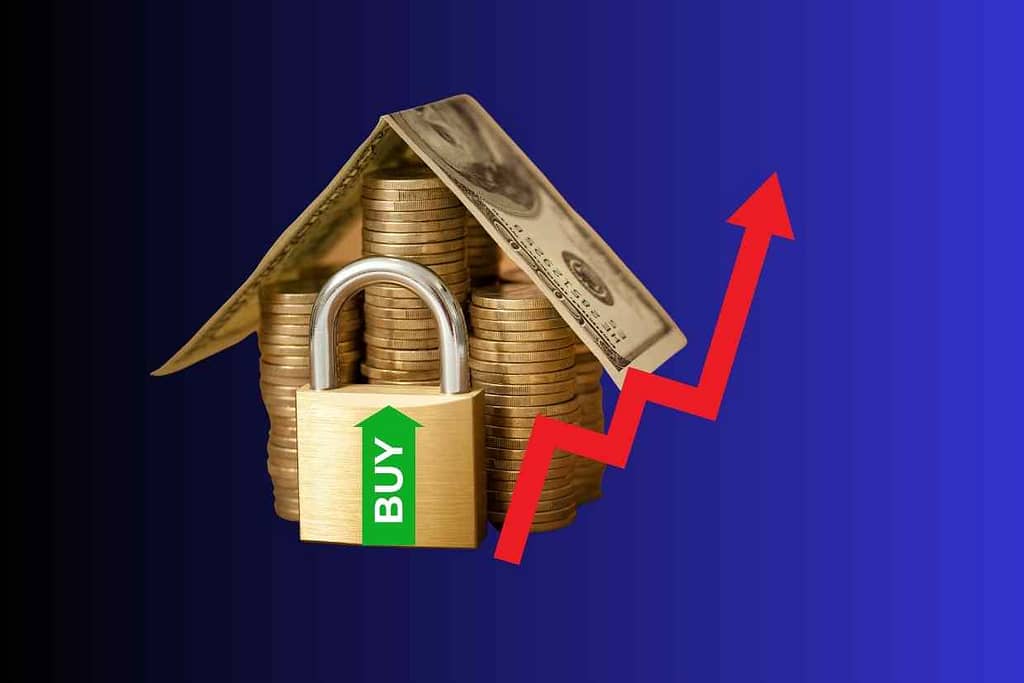Aussie Money Control : Investing your hard-earned money wisely is a crucial financial decision. In Australia, one of the options available is term deposits.
But with an ever-changing economic landscape, is it still a good choice in 2023 ?
Term deposits in Australia are a type of savings account where you agree to lock your money away for a set period of time in exchange for a higher interest rate. The interest rate on term deposits is typically higher than the interest rate on a regular savings account, but you will not be able to access your money until the term is over.
There are a few reasons why you might want to invest in term deposits in Australia in 2023. First, interest rates are currently rising, so you may be able to earn a higher return on your investment than you would with a regular savings account. Second, term deposits are considered to be a low-risk investment, so you are less likely to lose money. Third, term deposits are easy to set up and manage, and you can usually access your money early if you need to.
However, there are also some drawbacks to investing in term deposits. First, the interest rates on term deposits are not as high as they used to be, so you may not earn a lot of money on your investment. Second, you will not be able to access your money until the term is over, so you may not be able to use it if you need it in an emergency. Third, term deposits are not as liquid as other investments, such as shares or bonds, so it may be difficult to sell them if you need to.
In this article, we will explore the pros and cons of investing in term deposits in Australia, compare them with other investment options, and provide insights to help you make an informed decision.
What is a Term Deposit?
A term deposit is a savings product offered by banks and financial institutions in which you invest a lump sum of money for a fixed term, typically ranging from a few months to several years. In return, you receive a predetermined interest rate, and your capital is guaranteed upon maturity.
Advantages/Pros/Likes of Term Deposits in Australia
Safety and Stability: Term deposits are considered one of the safest investments. Your initial investment is protected, and you receive a fixed interest rate, providing financial security.
Predictable Returns: With a set interest rate, you know exactly how much interest you’ll earn over the investment term, making budgeting and financial planning more straightforward.
Low Risk: Term deposits are low-risk investments compared to other options like stocks or cryptocurrencies, making them suitable for conservative investors.
Liquidity : While your money is locked in for a specific term, you can still access it in emergencies, although with some penalties.
Good for Short-Term Goals : Term deposits are ideal for short-term financial goals, such as saving for a vacation or a down payment on a home.
Points to check before applying for Term deposit in australia

Here are some of the points to check in term deposits before applying in Australia:
Interest rate: The interest rate is the most important factor to consider. Make sure to compare the interest rates offered by different banks before you choose one.
Term: The term is the length of time you will lock your money away for. Longer terms typically offer higher interest rates, but you will not be able to access your money until the term is over.
Fees: Some banks charge fees for term deposits. Make sure to check the fees before you choose a bank.
Conditions: Some banks have conditions on their term deposits, such as a minimum deposit amount or a requirement to make regular deposits. Make sure to read the terms and conditions carefully before you choose a bank.
Bank’s financial stability: Check the bank’s financial stability before investing in a term deposit. You can do this by checking the bank’s ratings from credit rating agencies such as Standard & Poor’s or Moody’s.
Insurance: Some banks offer insurance on term deposits. This means that if the bank goes bankrupt, you will still get your money back. Make sure to check if the bank you are considering offers insurance on term deposits.
Security: Make sure that the term deposit is covered by the Financial Claims Scheme (FCS). This means that you will be protected if the bank goes bankrupt.
It is important to do your research and compare different term deposit options before you make a decision. You can also talk to a financial advisor for help.
Here are some additional tips for choosing a term deposit:
Consider your financial goals: What are you saving for? If you are saving for a short-term goal, such as a holiday, then you may want to choose a term deposit with a shorter term. If you are saving for a long-term goal, such as retirement, then you may want to choose a term deposit with a longer term.
Consider your risk tolerance: How much risk are you comfortable taking? Term deposits are considered to be a low-risk investment, but there is always some risk involved. If you are not comfortable with any risk, then you may want to consider other investment options, such as cash or savings accounts.
Be flexible: Be prepared to change your plans if necessary. Things can change unexpectedly, so it is important to be flexible with your investment plans. If you need to access your money sooner than expected, you may have to pay an early withdrawal penalty.
13 Best Term Deposit Rates in Australia 2023 | Top banks Term deposit rates in Australia
- ING Direct: 3.30% p.a. for 12 months
- AMP Bank: 3.25% p.a. for 12 months
- Community First Bank: 3.25% p.a. for 12 months
- Great Southern Bank: 3.25% p.a. for 12 months
- Aussie Wealth: 3.20% p.a. for 12 months
- Bank Australia: 3.15% p.a. for 12 months
- Tangerine Bank: 3.10% p.a. for 12 months
- UBank: 3.10% p.a. for 12 months
- Bank of Queensland: 3.00% p.a. for 12 months
- Suncorp Bank: 3.00% p.a. for 12 months
- Bankwest: 2.95% p.a. for 12 months
- Bendigo Bank: 2.85% p.a. for 12 months
- National Australia Bank: 2.80% p.a. for 12 months
NOTE : They are subject to change at the time you are reading,please check out the latest update on interest rates on their official websites.
Comparison with other investment factors
Here is a comparison of term deposits with other investment factors in Australia in 2023:
Interest rates: Term deposits typically offer higher interest rates than regular savings accounts. However, the interest rates on term deposits are not as high as they used to be.
Risk: Term deposits are considered to be a low-risk investment. However, there is always some risk involved in any investment.
Liquidity: Term deposits are not as liquid as other investments, such as shares or bonds. This means that it may be difficult to sell them if you need to.
Taxation: Interest earned on term deposits is taxed at your marginal tax rate.
Management fees: There are usually no management fees associated with term deposits.

Disadvantages/cons/dislikes/drawbacks of Term Deposits in Australia
Low Interest Rates : In 2023, term deposit interest rates in Australia are generally lower compared to the past, which means your returns may not outpace inflation, potentially reducing your real purchasing power.
Lack of Flexibility : Once you commit to a term deposit, your money is locked in until maturity. If you need access to funds before then, you may incur penalties and lose some interest.
Opportunity Cost : By investing in term deposits, you might miss out on potentially higher returns offered by riskier investments like stocks or real estate.
Comparing Term Deposits with Other Investment Options
Stocks: Investing in the stock market can provide higher returns over the long term, but it comes with higher risk and volatility. If you’re comfortable with risk and have a longer investment horizon, stocks may be a better choice.
Real Estate: Real estate investment offers potential capital growth and rental income. However, it requires a substantial upfront investment, and property markets can be cyclical.
Savings Accounts: While similar to term deposits, savings accounts offer more flexibility but generally have lower interest rates. They are suitable for emergency funds or short-term savings.
Bonds: Bonds are another fixed-income investment, but they can offer higher yields than term deposits. However, they come with varying levels of risk, depending on the issuer.
READ THIS ALSO :
How to Choose Cheap ASX stocks for Higher returns
22 Best Investment options in Australia 2023
Conclusion: Should You Invest in Term Deposits in Australia in 2023 ?
Whether or not you should invest in term deposits in 2023 depends on your financial goals, risk tolerance, and investment horizon.
Term deposits offer security and predictability but may not provide the best returns, especially in an environment of low-interest rates. Consider diversifying your portfolio by combining term deposits with other investments to strike a balance between safety and growth potential.
Ultimately, consulting with a financial advisor can help tailor your investment strategy to your specific needs and objectives, ensuring you make the right choice for your financial future.
If you are looking for a low-risk investment that will provide you with a steady stream of income, then term deposits may be a good option for you. However, if you are looking for a higher return on your investment or you need to be able to access your money quickly, then you may want to consider other investment options.
Until then ,Stay Invested.
See you on the other side.Thanks
FAQs (Frequently Asked Questions)
What is a term deposit, and how does it work ?
A term deposit is a savings product where you invest a fixed amount of money for a specified term at a predetermined interest rate. Your capital is guaranteed, and you earn interest upon maturity.
Why should I consider investing in term deposits in 2023 ?
Term deposits offer safety, stability, and predictable returns. They are suitable for short-term financial goals and risk-averse investors.
What are the disadvantages of investing in term deposits ?
Term deposits generally offer lower interest rates compared to riskier investments, like stocks. They also lack flexibility, as your money is locked in until maturity.
How do term deposits compare to other investment options like stocks and real estate ?
Term deposits are low-risk but offer lower returns. Stocks and real estate have higher potential for growth but come with greater risk and volatility.
Should I diversify my investments, including term deposits, to achieve better financial outcomes ?
Diversifying your investment portfolio by combining term deposits with other assets can help balance risk and returns. It’s a common strategy to achieve financial goals.